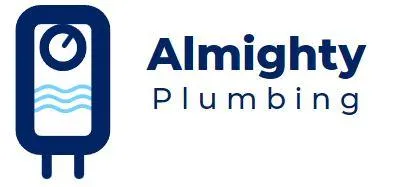Ultimate Comparison of Gas vs Electric Water Heaters
When making the decision to choose between a gas or electric water heater, it is crucial to be well-informed about the key distinctions between the two options. This article will provide a detailed examination of the advantages and disadvantages of both gas and electric water heaters. By comparing factors such as energy efficiency and upfront costs, Raleigh homeowners can make knowledgeable decisions that are in line with their individual requirements.

How do electric water heaters work?
Electric water heaters work by utilizing electrical energy to heat water. These appliances consist of a tank, heating elements, temperature and pressure relief valves, and a thermostat. When cold water enters the heater, it flows into the tank, which is insulated to retain the heat. Within the tank, one or two heating elements, typically made of metal sheathed electric resistors, heat the water. These heating elements are powered by electricity and are controlled by a thermostat, which regulates the water temperature. As the water heats up, it rises to the top of the tank while the colder water settles at the bottom. This process, known as convection, creates a continuous flow of hot water. When a hot water tap is opened in the house, the heated water from the top of the tank is distributed through the pipes, supplying hot water to the desired outlet. To ensure the safety of the system, electric water heaters are equipped with temperature and pressure relief valves. These valves automatically open if the temperature or pressure inside the tank exceeds safe levels, releasing excess heat or pressure.

Benefits of electric water heaters
Electric water heaters offer a variety of benefits that make them a popular choice for homeowners:
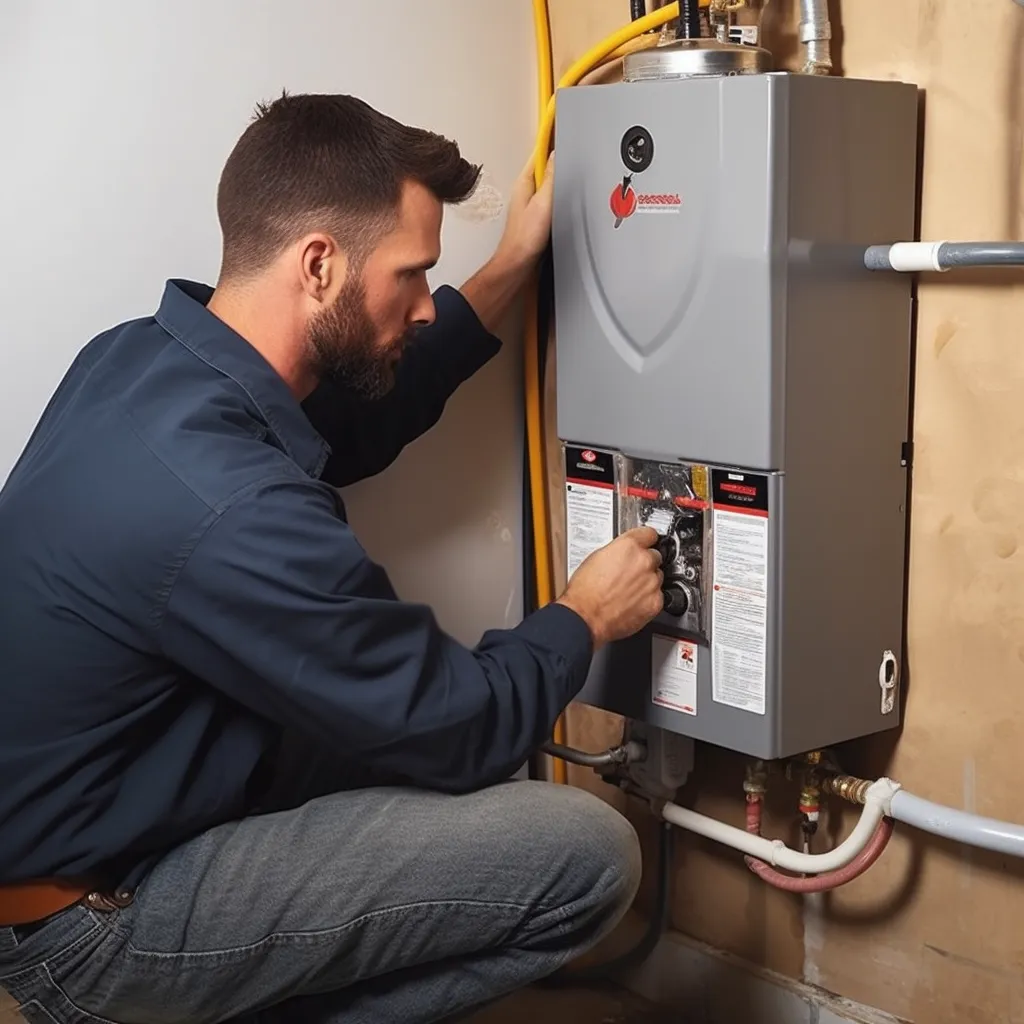
One of the key advantages of electric water heaters is their energy efficiency. These units are known for their ability to heat water quickly and efficiently, helping homeowners save on their energy bills.
Another benefit of electric water heaters is their durability and longevity. Unlike traditional gas water heaters, electric units do not have combustion components that can wear out over time. This means that electric water heaters typically have a longer lifespan and require less maintenance. In addition, electric water heaters are known for their ease of installation.
These units do not require venting, as they do not produce harmful gas emissions. This makes them a flexible option for homeowners, as they can be installed in a variety of locations, including tight spaces.
Electric water heaters also offer a high level of safety. Unlike gas water heaters, which can pose a risk of gas leaks or combustion-related accidents, electric units do not have these potential hazards. This makes them a preferred choice for homeowners concerned about safety.
Another advantage of electric water heaters is their versatility. Electric units are available in a range of sizes and capacities, allowing homeowners to choose the right option for their specific needs. Whether heating water for a small apartment or a large family home, there is an electric water heater available to meet the demand.
Electric water heaters are environmentally friendly. Unlike traditional gas units, electric water heaters do not produce harmful emissions during operation. This makes them a greener choice for homeowners looking to reduce their carbon footprint.
Disadvantages of electric water heaters
Electric water heaters, although widely used, come with their fair share of disadvantages:

They tend to have higher operating costs compared to other types of water heaters. This is because electricity is generally more expensive than alternative energy sources such as natural gas or propane. As a result, homeowners may find themselves paying higher utility bills when relying on an electric water heater.
Electric water heaters are often slower to heat water compared to gas-powered options. This is due to the fact that electric heating elements take longer to heat up and transfer heat to the water. This can be particularly problematic for households that require a large amount of hot water for multiple activities simultaneously, such as showering, running the dishwasher, and doing laundry.
Electric water heaters may require a significant amount of electrical power. If a home's electrical system is not adequately equipped to handle the demand from a high-powered electric water heater, it may lead to electrical issues such as tripped circuit breakers.
Upgrading the electrical system to accommodate the increased power requirements can be costly and time-consuming.
Electric water heaters may be more susceptible to sediment buildup compared to gas-powered models. Over time, minerals and sediments can accumulate at the bottom of the tank, reducing efficiency and potentially leading to corrosion or other damage. Regular maintenance and flushing of the tank are necessary to prevent these issues.
In the event of a power outage, electric water heaters are rendered useless unless they have a backup power source such as a battery or a generator. This can be particularly problematic during periods of extended outages, leaving households without access to hot water until power is restored.
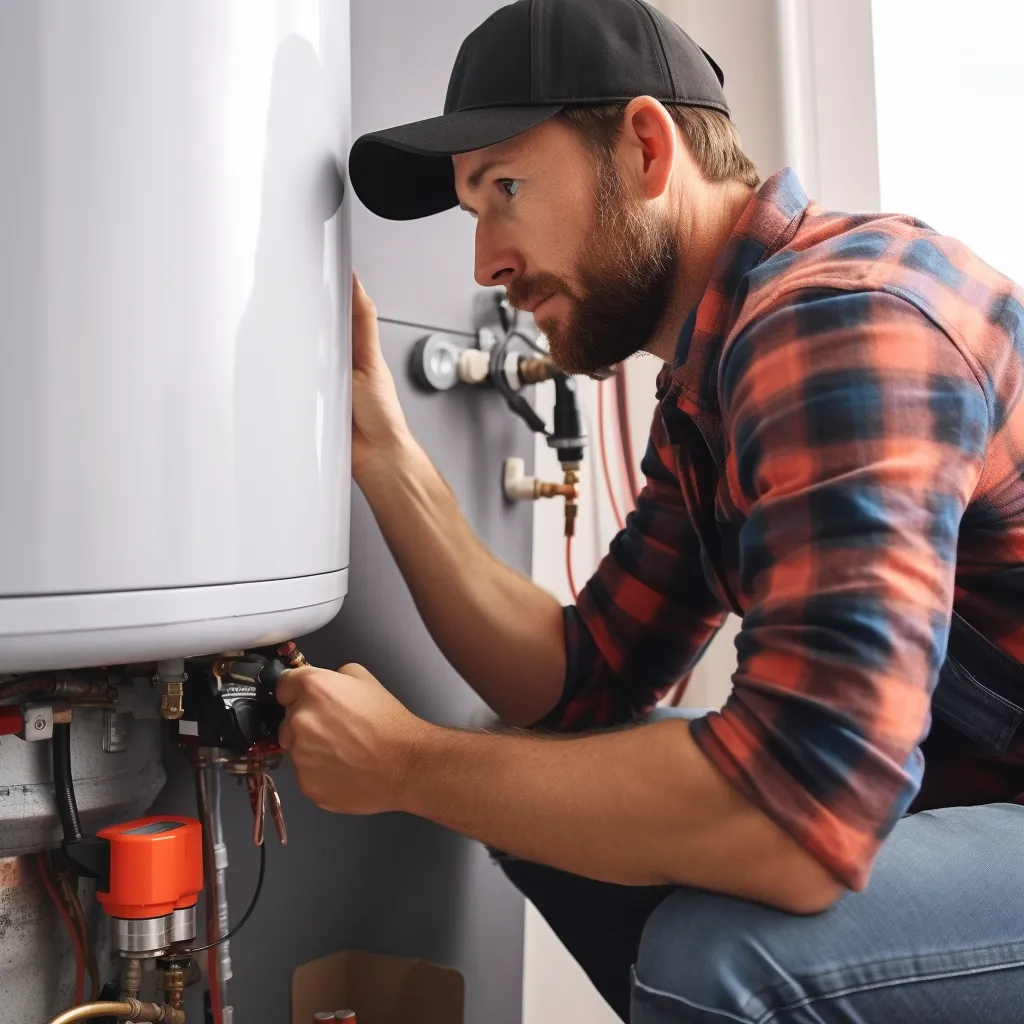

How do gas water heaters work?
Gas water heaters work by utilizing natural gas to heat water for use in the home. They typically consist of a burner located at the bottom of the unit, a tank to store the water, and various safety devices to regulate the temperature and pressure. When hot water is required, the burner ignites, heating the water in the tank. As the water is heated, it rises to the top of the tank, where it is then piped out when a faucet is opened. The burner will continue to operate until the desired temperature is reached or the demand for hot water is met. Gas water heaters are efficient and can provide a continuous supply of hot water, making them a popular choice for many households. It is important to perform regular maintenance and inspection to ensure the safe and proper functioning of the unit.
Pros of gas water heaters
There are several advantages to using gas water heaters for your home's hot water needs:
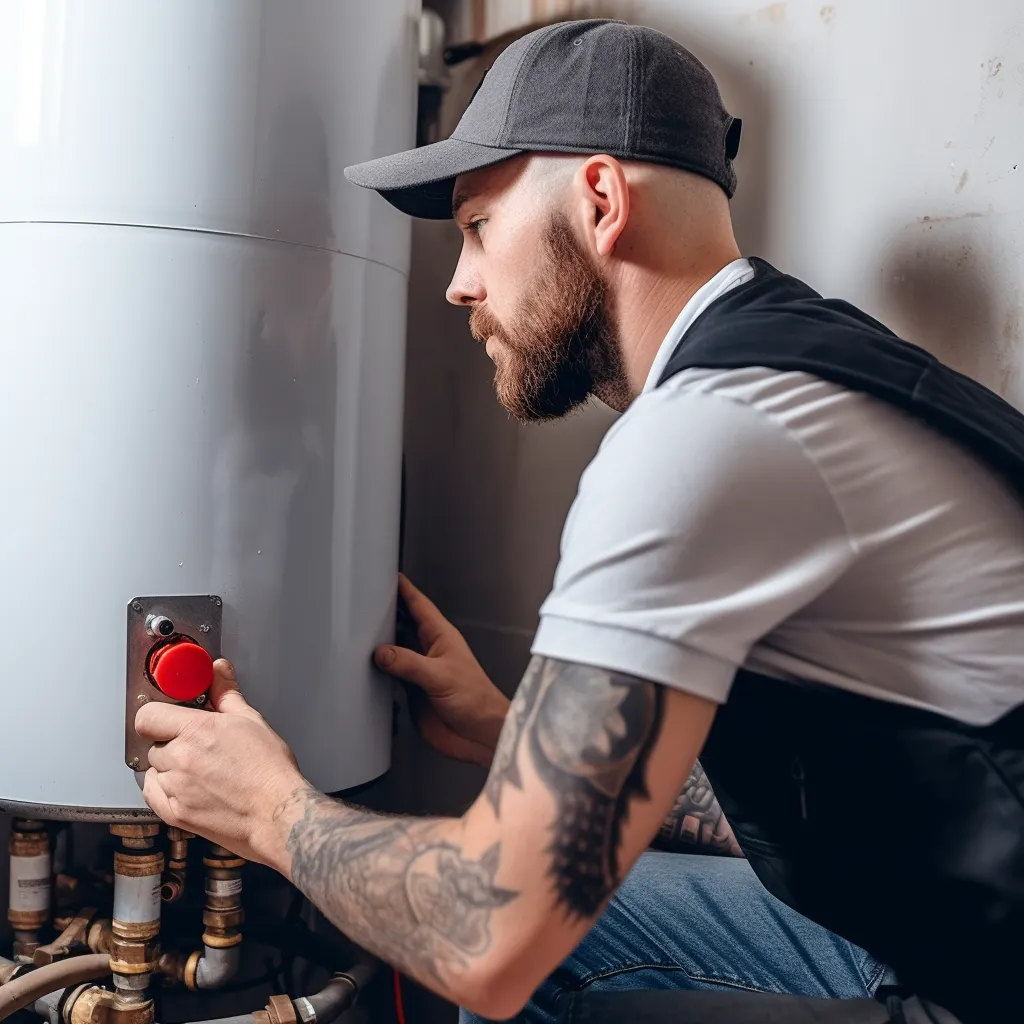
First and foremost, gas water heaters are energy efficient. They heat water quickly and effectively, allowing you to have a steady supply of hot water without wasting unnecessary energy.
Gas water heaters also have lower operating costs compared to electric models. Natural gas is generally less expensive than electricity, which means you can save money on your monthly utility bills by opting for a gas water heater.
Gas water heaters tend to have a longer lifespan than electric ones. They are built with durable components and require minimal maintenance, which can save you money on repairs or replacement in the long run.
Another advantage of gas water heaters is their ability to heat water consistently, even during power outages. Since they don't rely on electricity to function, you can still have access to hot water when the power goes out.
Gas water heaters offer faster recovery times. This means that you can easily meet the hot water demands of your household, whether it's for multiple showers, laundry, or dishwashing.
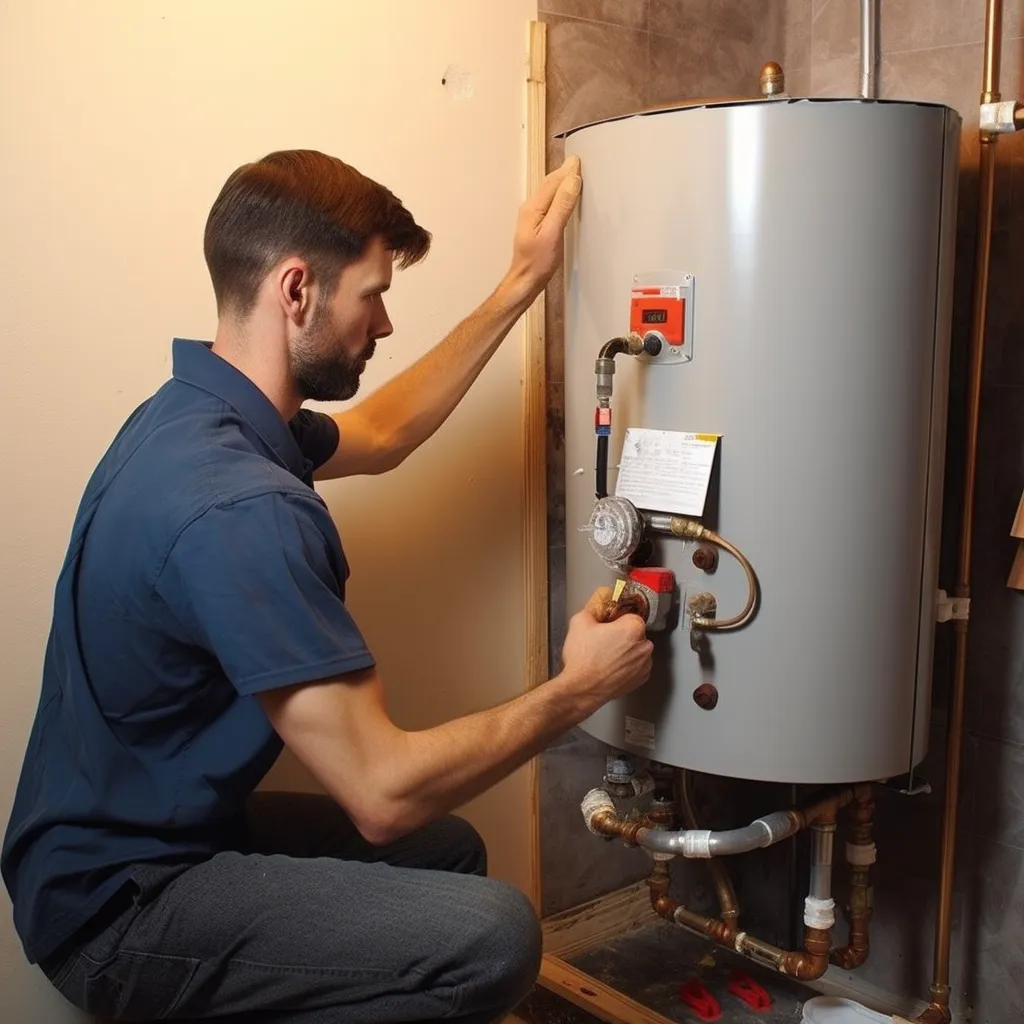
Cons of gas water heaters
There are several drawbacks associated with gas water heaters that consumers should be aware of before making a purchasing decision:

First and foremost, gas water heaters tend to be more expensive to purchase and install compared to electric water heaters. This can be a significant upfront cost that may deter some consumers.
Gas water heaters require a gas supply line and proper venting, which may require professional installation. This not only adds to the installation cost but also limits the flexibility of where the water heater can be located in the home.
Gas water heaters also have ongoing operating costs. While natural gas is generally cheaper than electricity, fluctuations in gas prices can affect the monthly utility bills.
Gas water heaters have a lower energy efficiency rating compared to electric water heaters, resulting in higher energy consumption and potentially higher energy bills.
Another drawback of gas water heaters is that they produce combustion gases during operation. These gases, such as carbon monoxide, need to be properly vented to the outside to ensure the safety of household occupants. This requires regular inspection and maintenance to prevent any potential health hazards.
Gas water heaters have a shorter lifespan compared to electric water heaters. On average, gas water heaters last around 8-12 years, while electric water heaters can last up to 15-20 years. This means that homeowners may need to replace a gas water heater sooner, adding to the overall costs in the long run.
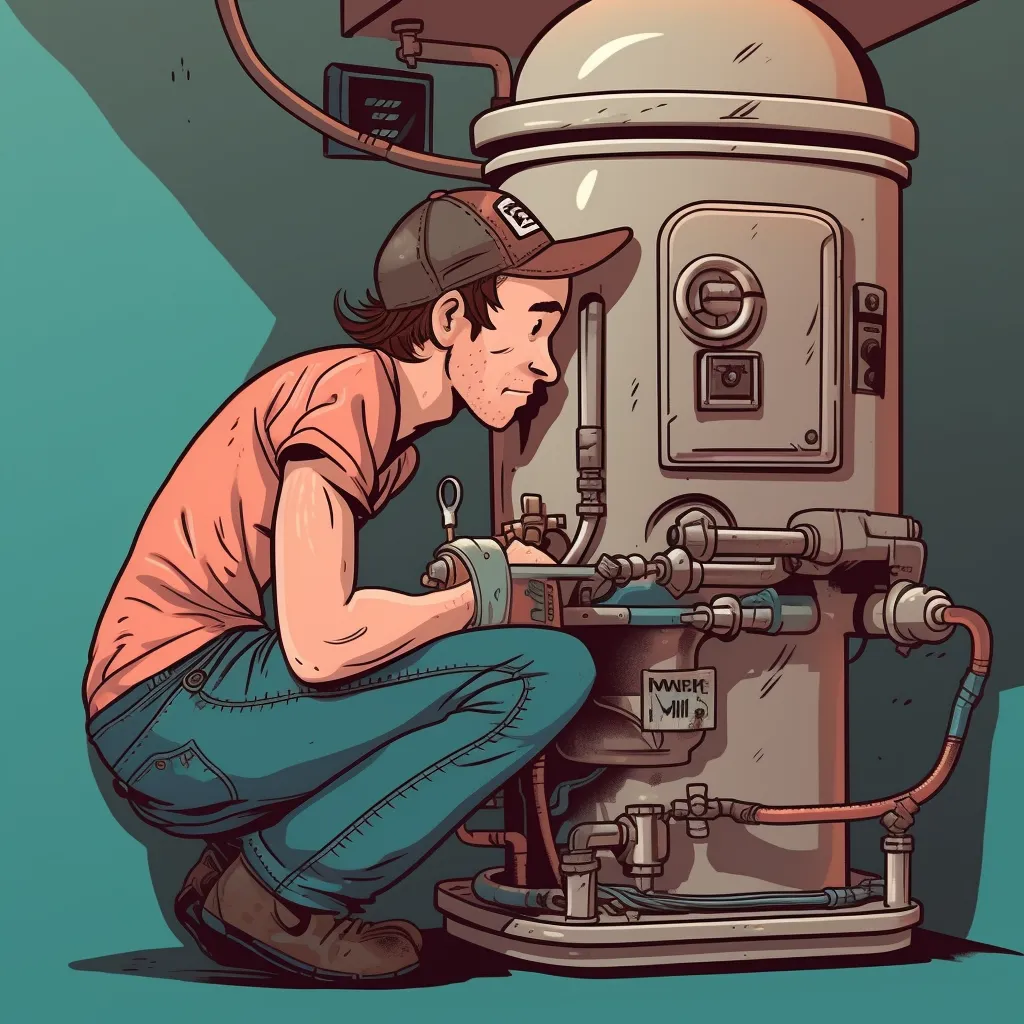
Are electric water heaters energy-efficient?
Electric water heaters can be energy-efficient depending on various factors. Newer models are designed with insulation and advanced technologies to maximize energy savings. One of the key factors that determine the energy efficiency of an electric water heater is its Energy Factor (EF) rating. The EF rating indicates how efficiently the unit converts energy into hot water. Higher EF ratings signify greater energy efficiency. Electric water heaters with features like programmable timers and advanced thermostats provide additional energy-saving capabilities. These features allow homeowners to control when the unit operates, ensuring hot water is available when needed while minimizing energy consumption during periods of low demand. Another consideration for energy efficiency is the size of the water heater. Selecting the appropriate size based on household needs can prevent unnecessary energy waste. An oversized unit may consume more energy to maintain a higher water temperature than necessary. Regular maintenance is crucial for the energy efficiency of electric water heaters. Flushing the tank regularly to remove sediment buildup can prevent energy loss through inefficient heating.

Are gas water heaters energy-efficient?
Gas water heaters are known for their energy efficiency. They operate by using natural gas or propane to heat the water, which results in quicker heat-up times compared to electric water heaters. This efficiency not only saves time but also reduces energy consumption, making gas water heaters more cost-effective in the long run. Additionally, they have lower standby energy losses, meaning they retain heat better when not in use, providing further energy savings. With their high efficiency and dependable performance, gas water heaters are a popular choice for those looking to maximize energy savings in their homes.
Cost to buy and install electric water heaters
The cost of purchasing and installing an electric water heater will vary depending on several factors. On average, the price range for an electric water heater is typically between $500 and $1,500. However, keep in mind that this is just the cost of the unit itself. In addition to the initial purchase price, you will also need to consider the cost of installation. The installation cost can vary depending on factors such as the complexity of the installation, the location of the water heater, and any additional materials or labor required. The installation cost can range from $200 to $1,000. It's important to note that these are just general estimates, and the actual cost you will incur may vary. To get an accurate estimate, it is recommended to consult with a professional plumber who can assess your specific needs and provide you with a more precise cost for buying and installing an electric water heater.

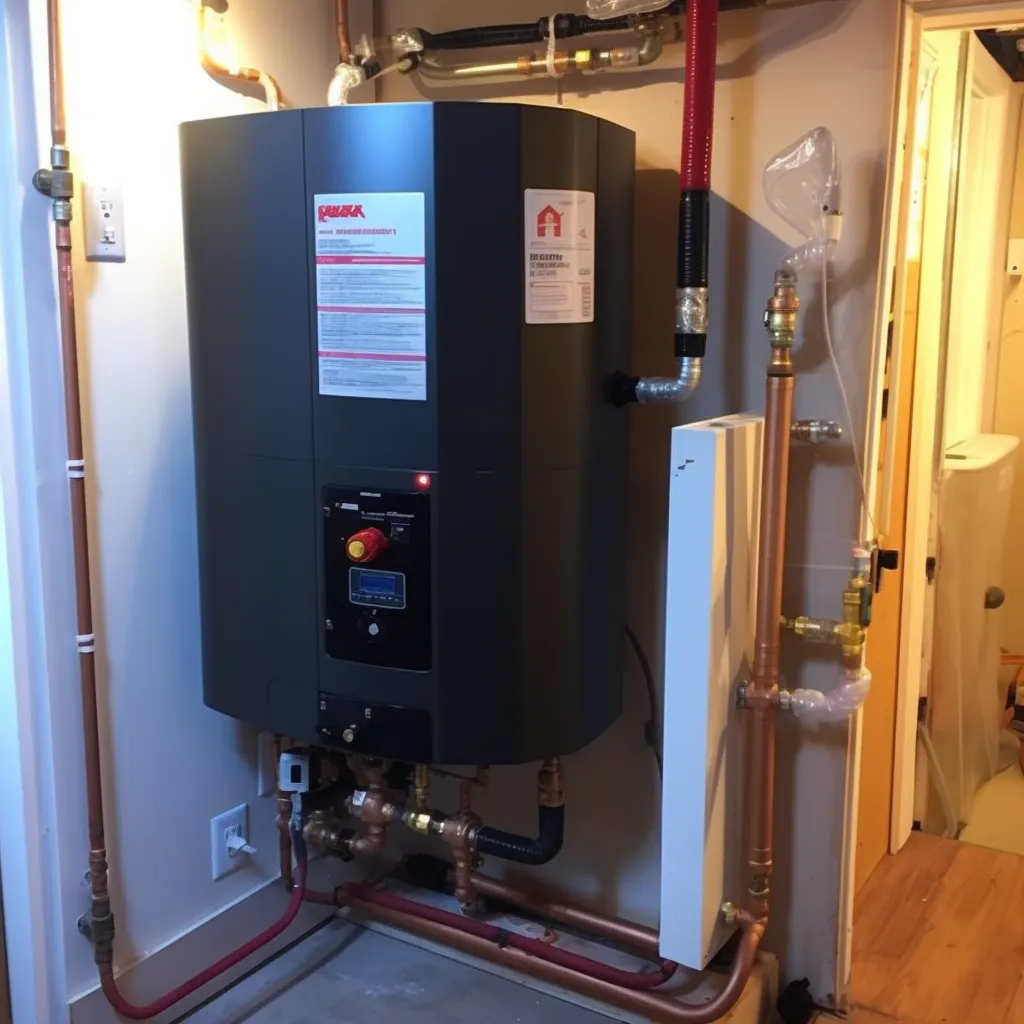
What does it cost to buy and install gas water heaters?
When it comes to purchasing and installing gas water heaters, the cost can vary depending on several factors. On average, the price range for a gas water heater can be anywhere from $500 to $1,500. The cost of installation typically ranges from $300 to $800, depending on the complexity of the installation and any additional work required. It is essential to consider that this cost is separate from the purchase price of the water heater itself. Factors that can affect the total cost include the size and capacity of the water heater, the brand and model chosen, any additional features or specifications desired, and the region or area where you live. To get an accurate estimate for purchasing and installing a gas water heater, it is recommended to consult with a professional plumber or heating contractor. They can assess your specific needs, provide recommendations, and provide a detailed cost estimate based on your unique situation. Don't forget to inquire about any warranty options or service agreements that may be available.
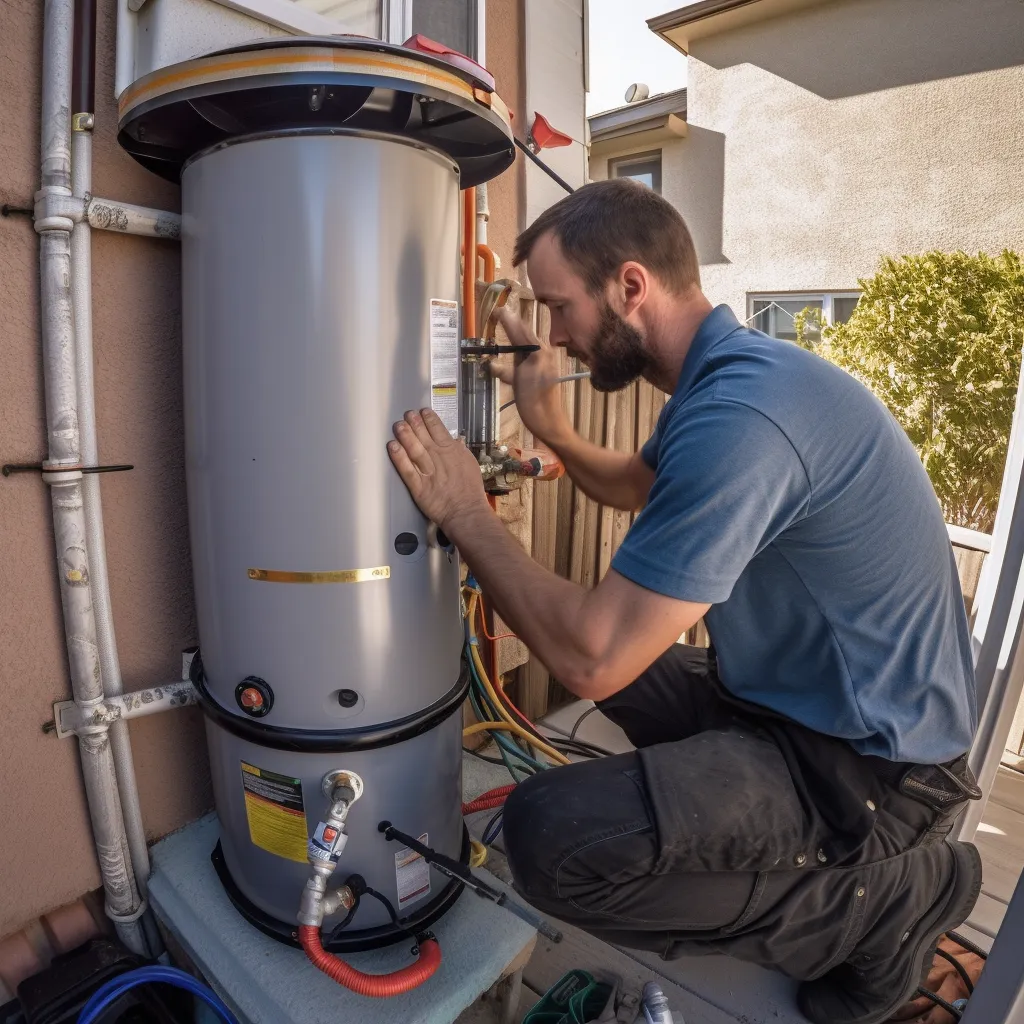
Maintenance needs of electric water heaters
Optimizing maintenance for electric water heaters is essential to guarantee their dependability and safety. Consistent monitoring and inspection of the temperature and pressure relief valve are necessary measures to prevent overheating and avoid the potential hazards of explosions. To ensure optimal efficiency, flushing the tank every six months to one year is crucial for eliminating sediment buildup. Regular inspection of the heating elements is also important to detect any damage or mineral accumulation and replace them as needed. It is equally vital to maintain secure and undamaged electrical connections to ensure safe functioning. If you are uncertain about performing maintenance tasks, it is strongly advised to consult a licensed professional for assistance.

Maintenance needs of gas water heaters
Proper maintenance plays a crucial role in maximizing the performance and safety of your gas water heater. It is important to perform routine tasks to ensure that your unit operates effectively and efficiently. Flushing the tank on an annual basis helps to remove sediment and minerals that can negatively impact the heater's performance. Inspecting the anode rod every few years is also important as a corroded rod can cause leaks and reduce the lifespan of your heater. Regularly monitoring the burner and pilot assembly for debris or damage helps to ensure that the heater functions properly. It is equally important to test the temperature and pressure relief valve annually to confirm that it is in good working condition. Lastly, checking for gas leaks is a critical step in maintaining the safety of your gas water heater. If you are unsure or have any concerns, it is advisable to consult a licensed professional for assistance. The timely performance of these maintenance tasks will help to maintain the efficiency and safety of your gas water heater.

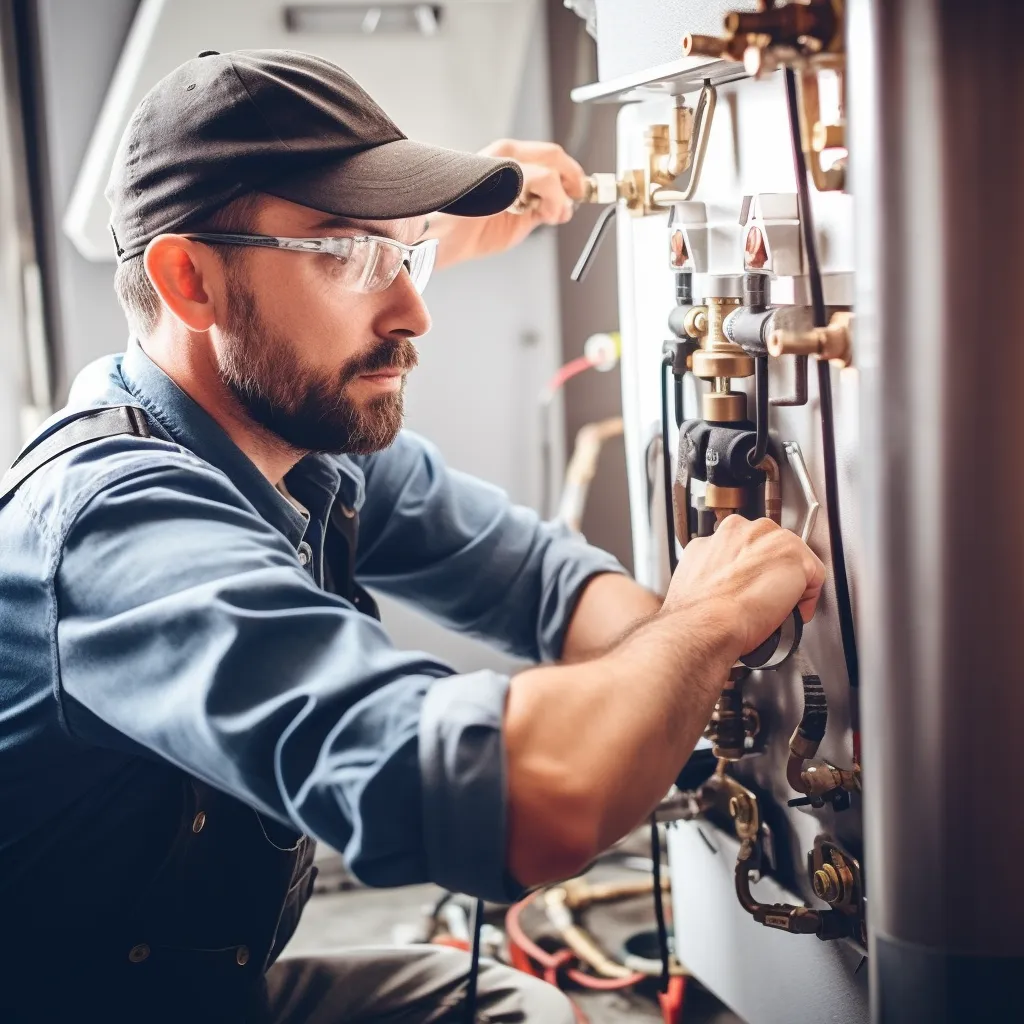
Safety considerations of electric water heaters
To ensure the safety of your electric water heater and prevent potential hazards, it is of utmost importance to prioritize safety measures. Among the various risks associated with electric water heaters, the danger of electrocution is a prominent concern. This risk can arise if the water heater is not adequately grounded or experiences any malfunction. Additionally, fire hazards may emerge if the heater overheats or is placed in close proximity to flammable materials. To diminish the likelihood of these risks materializing, it is highly recommended to diligently adhere to the manufacturer's instructions. These guidelines are specifically designed to guarantee the safe and efficient operation of your electric water heater. Furthermore, it is strongly advised to engage the expertise of a licensed professional for the installation of your water heater. A trained professional possesses the requisite knowledge and experience to properly install the unit and ensure it adheres to necessary safety standards. By following these precautions and prioritizing safety measures, you can establish a secure and dependable operation of your electric water heater.
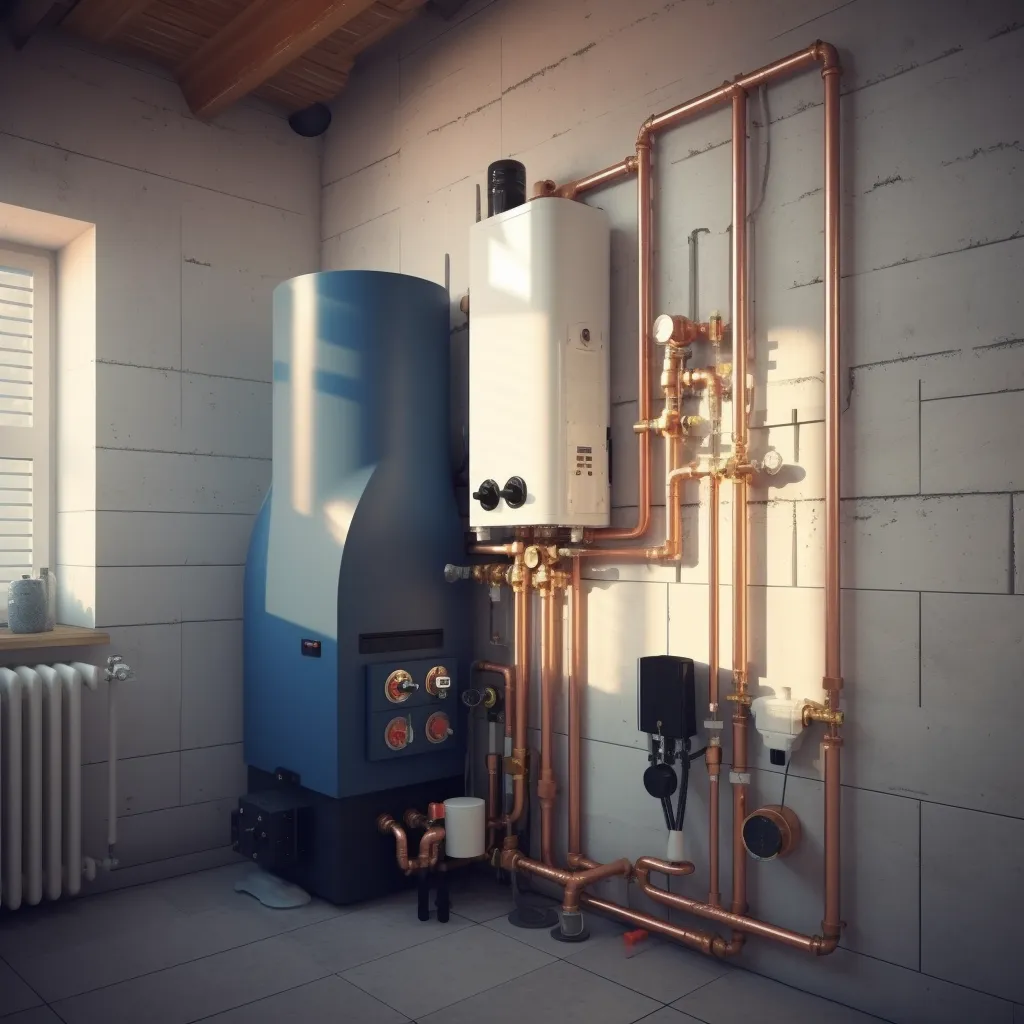
Safety considerations of gas water heaters
hen it comes to utilizing gas water heaters, safety should always be a top priority. One essential step in maintaining a safe environment is to install a carbon monoxide detector in close proximity to the heater. This detector can effectively monitor and alert you of any potential carbon monoxide leaks, which is a colorless and odorless gas that can be extremely harmful. In addition to installing a carbon monoxide detector, it is vital to inspect and maintain the gas water heater on a regular basis. Regular inspections allow you to identify any potential issues or malfunctions that could compromise the safety of the appliance. This can be done by a professional or by following the manufacturer's guidelines for maintenance. By taking proactive measures, you can prevent any potential hazards or breakdowns, ensuring the safe operation of the gas water heater. Furthermore, it is crucial to keep the area surrounding the gas water heater clear of any flammable materials. This includes not storing any combustible items near the heater, such as cleaning supplies, paper products, or aerosol cans. Creating a designated space for the gas water heater and keeping it free from any potential fire hazards minimizes the risk of accidents and ensures a safe environment within your home.

How to choose between electric vs gas water heater
When it comes to choosing between an electric and gas water heater, there are a few factors to consider:
The first and most obvious is the availability of the energy source. If your home already has a gas line, it may be more cost-effective to go with a gas water heater. On the other hand, if you don't have a gas line or prefer not to use one, an electric water heater is a viable option.
Another factor to consider is energy efficiency. Gas water heaters are generally more energy-efficient compared to electric ones. This is because gas heats water more quickly and efficiently than electricity. However, modern electric water heaters have improved significantly in terms of energy efficiency, so the difference may not be as significant as it once was.
Cost is another important consideration. While gas water heaters may have a higher upfront cost due to installation requirements, they tend to have lower operating costs in the long run. Gas is usually cheaper than electricity, so heating water with gas can save you money over time. However, it's essential to note that the cost difference will vary depending on your location and utility rates.
The installation process is also worth considering. Gas water heaters require a professional installation due to the gas line connection, which can add to the overall cost. In contrast, electric water heaters are typically easier and cheaper to install since they don't require gas lines.
It's crucial to think about maintenance and lifespan. Gas water heaters require regular maintenance, such as vent and burner cleaning, to maintain optimal performance. Electric water heaters, on the other hand, require less maintenance but may have a shorter lifespan compared to gas heaters.
Ultimately, the decision boils down to your own preferences, lifestyle, and budget. Take into account various factors such as how energy-efficient the water heater is, what the installation costs are, how much maintenance it will require, and the availability of fuel sources in your vicinity. Evaluate your hot water requirements, the potential long-term savings, and any environmental concerns you may have. By carefully considering these factors, you can choose a water heater that fits your needs and priorities, guaranteeing a consistent supply of hot water for your household.

Why you should hire a licensed professional to install your water heater
When it comes to installing or replacing a water heater, it is important to approach the task with care. While DIY may seem like a money-saving option, it can be hazardous. It is strongly advised to enlist the services of a licensed and experienced professional. These experts possess the necessary knowledge, skills, and experience to guarantee a secure and correct installation. By opting for professional help, you can rest assured that safety protocols will be adhered to and any potential problems will be addressed. Your well-being should always be the paramount concern, and entrusting the job to a licensed professional is a wise and responsible decision.
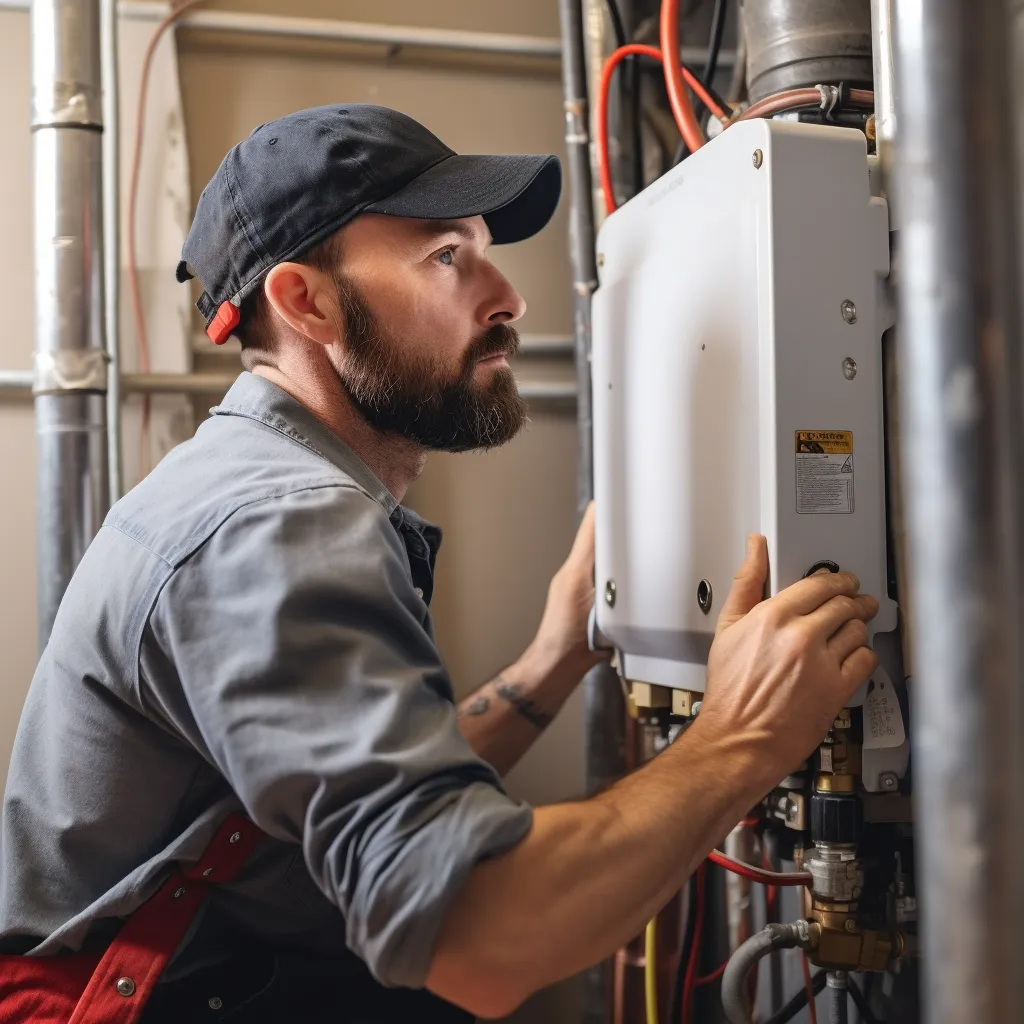
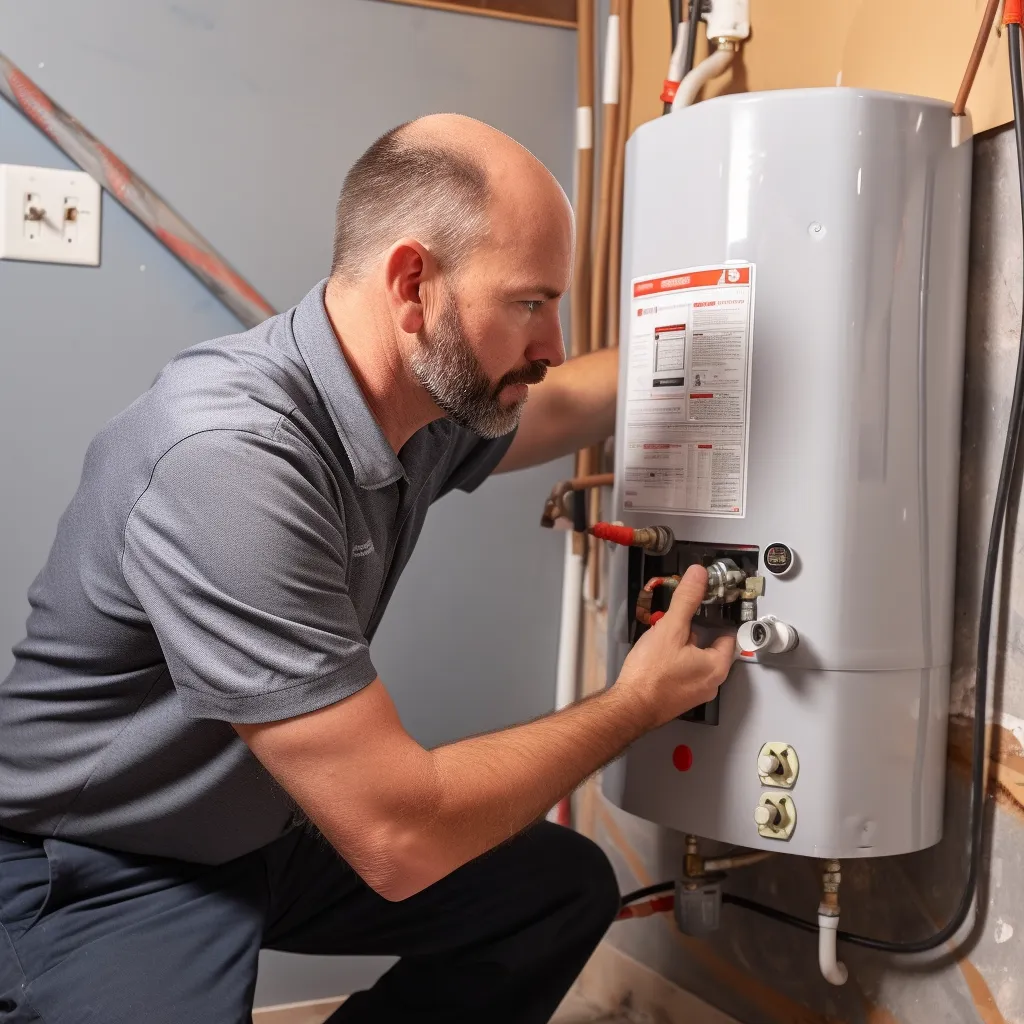
Be sure to conduct thorough research
If you're in the process of selecting a water heater, it is crucial to conduct extensive research. It is important to note that electric and gas models both offer advantages and disadvantages. Safety considerations and installation requirements must also be considered. By carefully considering these factors, you can find the perfect water heater for your specific requirements. However, it is essential to stress the importance of hiring a licensed professional for the installation process. Their expertise will ensure the safe and efficient operation of your water heater.
Contact Us
GET IN FULL TOUCH
PHONE: (984) 223-8754
EMAIL:
david@waterheatersinraleigh.com
Almighty Plumbing
Raleigh, NC 27602
